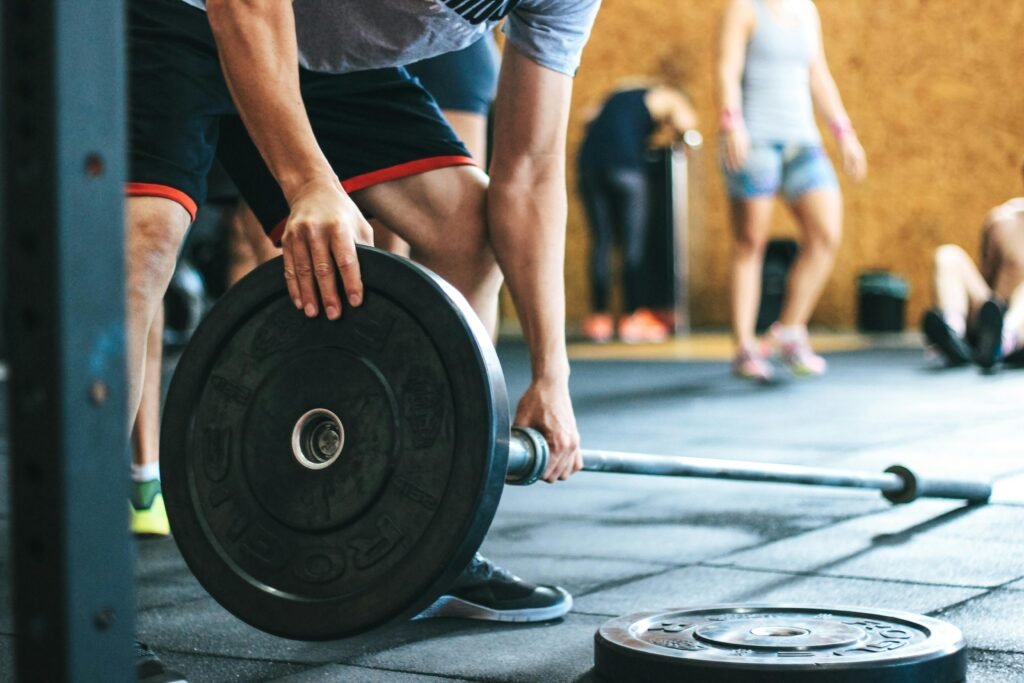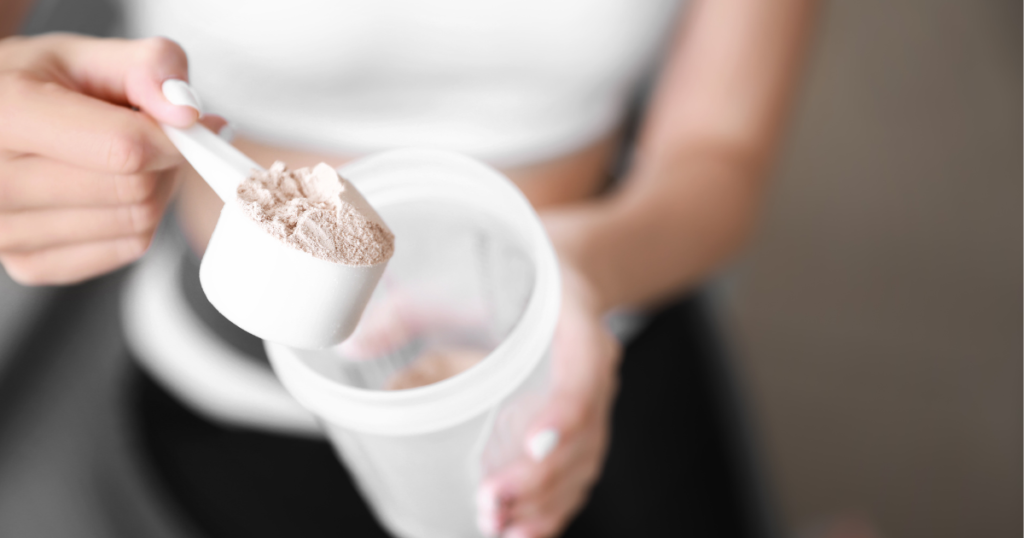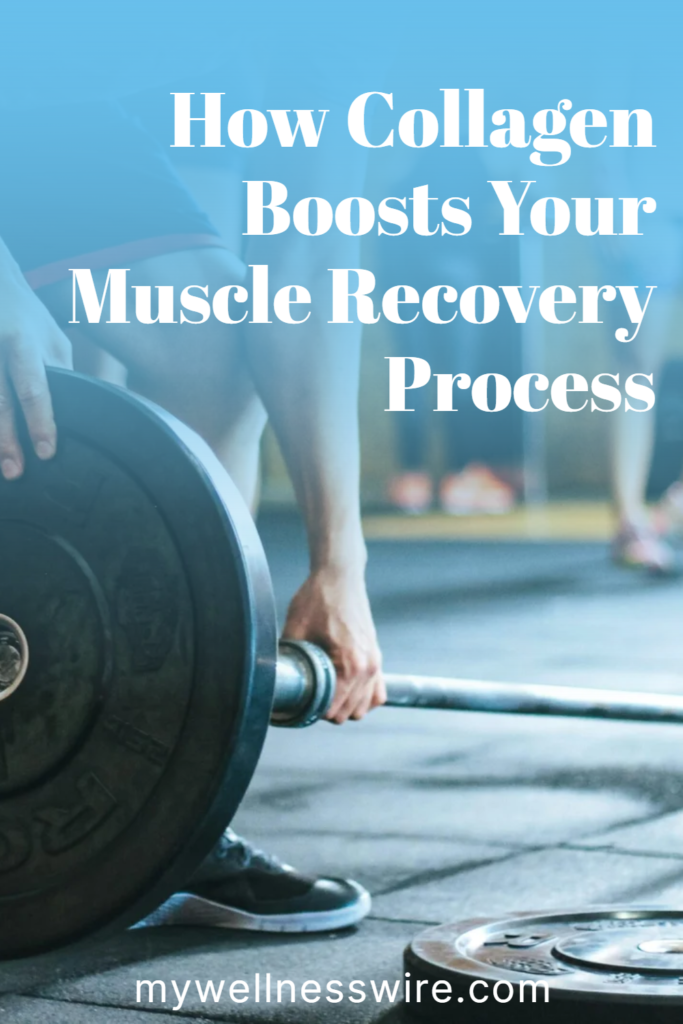
- Intro
- Understanding the Role of Collagen in the Body
- The Connection Between Collagen and Muscle Recovery
- Optimal Types of Collagen for Muscle Recovery
- How to Incorporate Collagen into Your Diet
- Recommended Dosage and Timing for Collagen Supplementation
- Scientific Research to Support the Use of Collagen for Muscle Recovery
Intro
Collagen for muscle recovery is a hot topic in the fitness world right now. Whether you are a seasoned athlete or a weekend warrior, understanding how collagen can boost your muscle recovery process is key to maximizing your performance.
Let’s dive into the role of collagen in the body, the connection between collagen and muscle recovery, the optimal types of collagen for muscle recovery, how to incorporate collagen into your diet, the recommended dosage and timing for collagen supplementation, and real-life success stories of collagen for muscle recovery.
See our list of the Top 5 Collagen Powder Supplements here.
Understanding the Role of Collagen in the Body
Collagen’s presence in the human body cannot be understated; it is the most prolific protein found within us, accounting for roughly a third of our body’s protein composition. This crucial protein serves as the cornerstone for the structural support of our connective tissues.
Its widespread impact touches everything from our skin’s elasticity to the robustness of our bones, highlighting its versatility and importance across various bodily functions.
The significance of collagen extends into the realm of our connective tissues, where it functions as a foundational support system. These tissues, encompassing tendons, ligaments, and muscles, rely on the integrity and strength that collagen provides. This relationship is particularly critical for individuals engaging in physical activities or sports.
The demanding nature of athletic endeavors can strain or even damage these tissues, necessitating a robust framework to withstand such pressures. Collagen’s role is thus twofold: it not only maintains the physical structure of these tissues but also plays a part in their ability to endure and recover from the stresses of exercise.
Furthermore, collagen is integral in promoting hydration and resilience within these tissues, attributes that are essential for their proper function and durability. This protein’s unique amino acid composition, featuring hydroxyproline and glycine, contributes to the formation and repair of connective tissue, underlining its pivotal role in the body’s overall health and ability to recover from physical exertion. As we explore the connection between collagen and muscle recovery, the importance of this protein in maintaining a healthy, active body becomes unmistakably clear.
The Connection Between Collagen and Muscle Recovery
The intricate relationship between collagen and the process of muscle recovery hinges on the protein’s ability to repair and regenerate muscle fibers that have been stressed or damaged during physical activity.
Engaging in workouts or any form of strenuous exercise creates microscopic tears in muscle fibers, initiating an inflammatory process within the body that, although natural, leads to soreness and a feeling of fatigue. It is within this critical phase of recovery that collagen steps into the spotlight, providing the essential building blocks needed for the repair of these tiny tears.
Collagen’s role is underscored by its unique amino acid profile, which includes significant amounts of glycine and proline. These amino acids are pivotal in the synthesis of new collagen within the body, aiding in the restoration of muscle tissue and enabling it to rebuild stronger and more resilient than before. This cycle of damage and repair is fundamental to muscle growth and strength, making collagen’s contribution invaluable to anyone looking to enhance their physical performance and recovery.
Moreover, the ability of collagen to support the recovery process extends beyond merely mending muscle fibers. Its influence on other connective tissues—such as tendons and ligaments—also plays a critical role in preventing injuries that could sideline an individual’s training progress.
By strengthening the connective framework that supports muscles, collagen helps to ensure that the body as a whole can withstand the rigors of exercise, facilitating a quicker, more efficient recovery process that prepares athletes and fitness enthusiasts for their next session.
Optimal Types of Collagen for Muscle Recovery

For those aiming to enhance their muscle recovery, focusing on Type I and Type III collagen proves most advantageous. These specific types are integral to the health and resilience of the body’s connective tissues, including muscles, tendons, and ligaments—areas particularly taxed during physical exertion.
Type I collagen, the most abundant within the human body, offers structural support, promoting the strength and flexibility necessary for vigorous activities. Meanwhile, Type III collagen, often found alongside Type I in the body’s musculature, aids in maintaining the integrity and elasticity of our connective tissues.
When seeking out supplements to support muscle recovery, the selection of products rich in these collagen types is crucial. This strategic choice ensures the provision of targeted support to the areas most affected by physical stress, thereby enhancing the body’s natural repair processes. Supplements that specifically list Type I and Type III collagen on their labels are preferable, as they directly address the needs of recovering muscles and connective tissues.
Read our comparison of Liquid Collagen vs Collagen Powder Supplements here.
In addition to supplementation, integrating collagen sources into one’s diet through natural means can also be beneficial. Foods rich in these collagen types, while not as concentrated as supplements, contribute to the overall pool of amino acids available for tissue repair and regeneration. This holistic approach to collagen supplementation, combining both dietary sources and targeted supplements, creates an optimal environment for muscle recovery, ensuring the body has access to the necessary components for building strength and resilience.
How to Incorporate Collagen into Your Diet
Incorporating collagen into your daily regimen need not be a complex endeavor. A highly versatile and accessible method is through the use of collagen protein powder.
This powder can seamlessly blend into various beverages and meals, making it an effortless addition to your diet. For instance, adding a scoop to your morning coffee, tea, or smoothie not only enriches your drink with essential amino acids but also ensures you start your day with a beneficial boost of collagen. Moreover, collagen protein powder can be incorporated into baking recipes or mixed into oatmeal, offering a nutritional enhancement to common foods.
Beyond supplements, naturally collagen-rich foods present another avenue to bolster your intake. Bone broth, renowned for its high collagen content, can serve as a warm, nourishing drink or as a base for soups and stews. Additionally, incorporating meats with connective tissues, like chicken thighs or drumsticks, and fish known for their skin and scales into your diet can further contribute to your collagen levels.
These dietary sources, combined with the convenience of collagen protein powder, provide a comprehensive approach to increasing your collagen intake, supporting your muscle recovery, and promoting overall well-being. By integrating these elements into your dietary routine, you create a foundation that supports your body’s natural repair mechanisms and enhances your fitness journey.
Recommended Dosage and Timing for Collagen Supplementation
Navigating the landscape of collagen supplementation for muscle recovery requires understanding the optimal dosage and timing to maximize benefits.
Generally, for individuals looking to support their muscle recovery and enhance performance, a dosage ranging from 10 to 20 grams of collagen protein powder daily is advised. This range is broad enough to accommodate various body weights and activity levels, allowing for customization based on personal needs.
Determining when to take collagen is as crucial as the amount consumed. To leverage collagen’s potential in muscle repair and growth, timing the intake around your workout schedule is recommended.
Consuming collagen approximately 30 minutes before exercise can prime the body for the physical stress to come, potentially aiding in the protection and repair of muscle fibers.
On the flip side, taking collagen post-workout can provide the necessary amino acids for muscle recovery during the critical window when the body is most receptive to nutrients for repair and growth.
Incorporating collagen at these strategic times ensures that the body has a steady supply of the amino acids needed for efficient muscle recovery. While individual responses may vary, starting with the recommended dosage and adjusting based on personal experience and recovery outcomes can help tailor the approach for optimal results.
Remember, consistency is key in observing tangible benefits from collagen supplementation in the context of muscle recovery.
Scientific Research to Support the Use of Collagen for Muscle Recovery
Recent scientific studies have started to shed light on the efficacy of collagen supplementation in aiding muscle recovery.
For instance, a study found that participants who took a collagen supplement before and after exercise experienced a significant reduction in muscle damage compared to those who did not.
Another research article reported that collagen supplementation could potentially increase the synthesis of muscle proteins, enhancing the repair and growth of muscle tissue after strenuous physical activity.
These studies highlight the biological mechanisms through which collagen assists in the recovery process, particularly its role in promoting the regeneration of damaged muscle fibers and reducing inflammation.
While more research is needed to fully understand the extent of collagen’s benefits for muscle recovery, these findings offer promising insights into its potential as a valuable supplement for athletes and fitness enthusiasts aiming to optimize their recovery and performance.
Pin this post to read later



